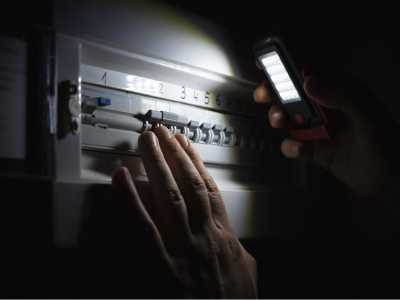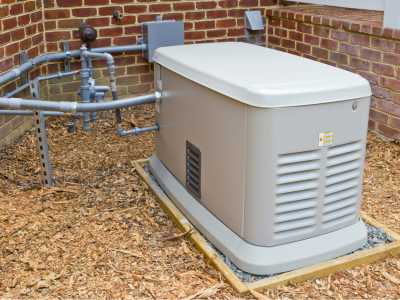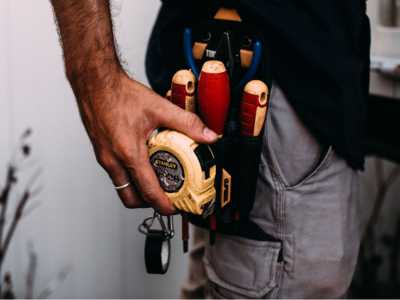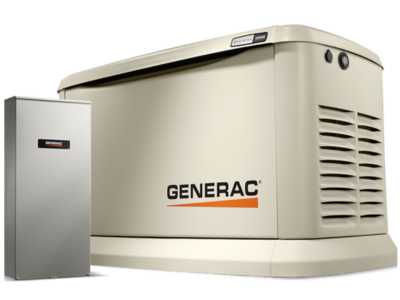Choosing the right kW standby generator for your home is a crucial decision that ensures your family remains comfortable and safe during power outages. Standby generators are permanent fixtures that can power your home’s essential appliances and systems automatically when the grid goes down. With options ranging from small, basic units to large, whole-house generators, it’s important to select one that fits your specific needs.
In this comprehensive guide, we’ll walk you through the steps to find the perfect KW standby generator for your home.

Understanding Your Power Needs
Before you can select the right generator, you need to understand your power requirements. This involves identifying the essential appliances and systems you need to keep running during an outage.
List Your Essentials
Create a list of the items you can’t do without during a power outage. This typically includes the refrigerator, HVAC system, water heater, sump pump, and certain lights. Don’t forget about medical equipment if someone in your home relies on a powered device for their health.
Calculate Your Power Consumption
Each appliance has a wattage rating which tells you how much power it consumes. You’ll need to add up the wattage of all the appliances you want to run simultaneously. Remember to consider both starting wattage (the surge of power needed to turn on the appliance) and running wattage (the power needed to keep it running).
Types of Standby Generators
Once you know your power needs, you can start looking at the types of generators available.
Air-Cooled vs. Liquid-Cooled Generators
Air-cooled generators are typically less expensive and work well for most residential applications. Liquid-cooled models are more suited for larger homes or those with higher power demands, as they can handle a larger workload and run more quietly and efficiently.
Fuel Types
Standby generators can run on natural gas, propane, or diesel. Natural gas generators are convenient if you have a gas line to your home, while propane is a good option if you need a larger fuel supply on hand. Diesel generators are less common for residential use but are valued for their efficiency and longevity.

Sizing Your Standby Generator
Sizing is crucial when choosing your standby generator. A unit that’s too small won’t power all your essentials, while one that’s too large is unnecessarily expensive and can be less efficient.
The Role of kW in Generator Sizing
kW, or kilowatt, is a unit of power. Residential standby generators typically range from 7 kW to 22 kW. The size you need depends on your calculated power consumption.
Professional Assessment
For the most accurate sizing, consider getting a professional assessment. A licensed electrician or generator installer, such as Engle Services, can perform a detailed evaluation of your power needs and recommend the appropriate size.
Features to Consider
Standby generators come with various features that can influence your decision.
Transfer Switch
A transfer switch is essential for a standby generator. It safely disconnects your house from the power grid and switches it to generator power during an outage. There are manual and automatic transfer switches; the latter offers convenience as it activates the generator without your intervention.
Noise Level
Standby generators can be noisy. If noise is a concern, look for models with sound attenuation features or consider installing the generator further from your home if space allows.
Warranty and Support
A robust warranty and accessible customer support are crucial, especially for such a significant investment. Research different brands and models to find ones with favorable warranties and strong customer support.
Consider Your Budget
Standby generators are an investment, and prices can vary widely based on size and features.
Initial Costs
The purchase price of the generator itself is just the beginning. You also need to factor in installation costs, which can include electrical and gas work, as well as potential landscaping changes to accommodate the generator.
Operating Costs
Consider the fuel consumption and maintenance costs when budgeting for your standby generator. Liquid-cooled models, for instance, might be more efficient but also more expensive to maintain.

Preparing for Installation
Once you’ve selected your standby generator, there are a few things to prepare for installation.
Permits and Regulations
Check local codes and regulations to ensure compliance. You may need to obtain permits before installation can begin.
Choosing a Location
Standby generators need to be placed in a well-ventilated area, away from windows and doors to prevent exhaust from entering the home. The location should also be easily accessible for maintenance.
Working with Professionals
Hiring a professional installer is highly recommended. They can handle every aspect of the installation process, including obtaining necessary permits, ensuring proper placement, and making all the electrical and gas connections.
Maintenance and Upkeep
Proper maintenance is key to ensuring your standby generator is ready when you need it.
Regular Check-ups
Regular maintenance tasks include checking oil levels, changing the oil and filters, and ensuring that the unit is clean and free of debris.
Professional Servicing
Have a professional service your generator annually. They’ll do a thorough inspection and perform any necessary repairs or replacements to keep your generator in top shape.

Generac 22 kW Home Standby Generator
For many homeowners, the Generac 22 kW Home Standby Generator is an excellent choice. It strikes a balance between size and power, making it suitable for most average-sized homes.
Why Choose Generac 22 kW
The Generac 22 kW generator is designed to power essential appliances and a few additional items without being overkill. It’s also relatively quiet and comes with a 7-year limited warranty, which is quite comprehensive in the industry.
Installation and Maintenance
Generac standby generators are known for their ease of installation and low maintenance requirements. However, professional installation is still recommended to ensure it’s done correctly and safely.
Conclusion
Choosing the right kW standby generator for your home involves understanding your power needs, considering the types of generators available, and finding the right size for your requirements. Features like transfer switches, noise levels, and warranties also play a role in your decision. The Generac 22 kW Home Standby Generator is an excellent option for many, but no matter which generator you choose, make sure to budget for all costs and prepare for installation and maintenance. With the right standby generator, you can have peace of mind knowing that your home will remain powered during those unexpected outages.
Engle Services offers standby generator installation and repair in
Sylacauga, Talladega, Birmingham, Shelby County (Hoover, Chelsea), Alabaster, Pell City, Dadeville, Wetumpka, Montgomery and all their surrounding areas.
Ready to schedule with our team of HVAC Technicians, Electricians, and Plumbers?
Schedule an appointment online or give us a call at (855) GET-ENGLE
